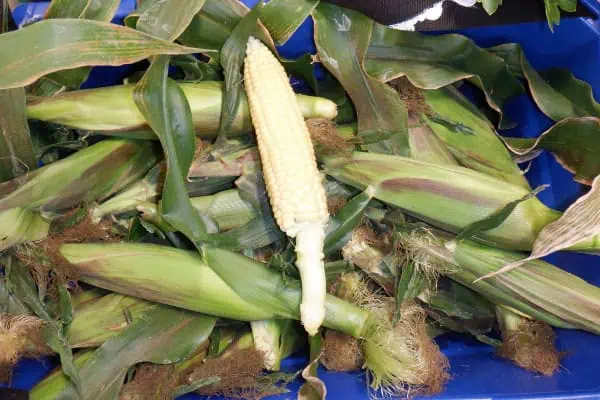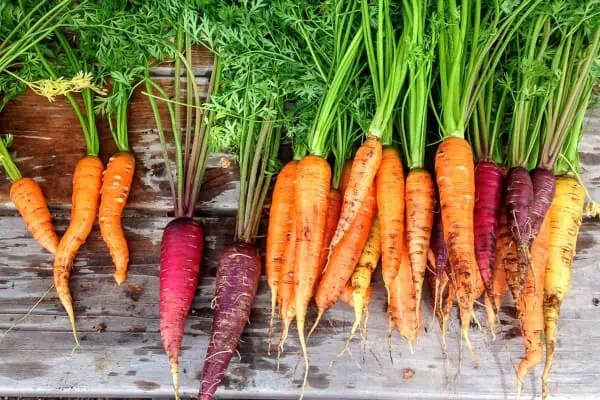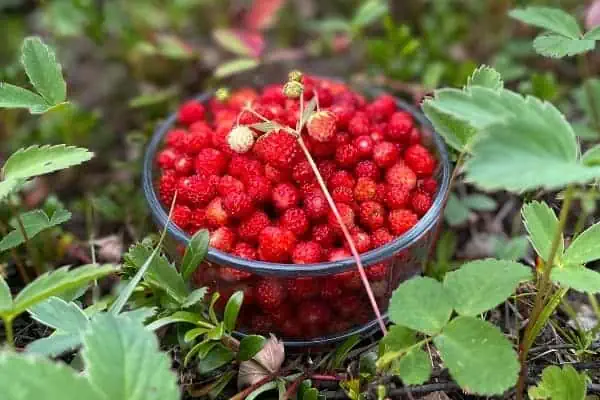Espalier’d fruit trees press themselves against stone walls, looking down on neat rows of turned earth. Some are lined with glass cloches. I now know these cover strawberries in a bid to be the first to market. I imagine seeing through the wall of stone that separates the market garden, my granddad’s responsibility, from the “home garden,” mostly herbs, tended by the lady of the house. Most of all I wish I could see the orangerie, a place to sit for tea and contemplation, sheltered beneath a glass overhang and surrounded with oranges and lemons. A far cry, perhaps, from the rough benches I tuck beneath my apple trees in their plastic tents, but my nooks are open to all. The orangerie was out of bounds for my family.
As leaves start to fall and I swaddle my garden in rows of spun plastic to protect it from night frosts, I am exploring my family connection to gardening. Perhaps it’s because I feel a little alone sometimes, a spur way out on the family tree with little connection to roots that lie in other countries and cultures. My backwoods northern lifestyle mirrors that of my childhood, but in the little I know of my family history I am unaware of prominent gardeners or farmers with strong connections to the land that feeds them. There is one recollection, a mention in one of the few anecdotes I know from my father’s childhood, that his dad had a market garden for a number of years. I know the lead is thin, the trail winding across continents and through a life with little connection to the agrarian. It is only now, in near-retirement, after decades of working in far corners of the globe, that my dad is turning to the Earth in his own backyard. It seems a fitting time for me to ask about granddad’s stint as a market gardener near Windsor Castle, the only landmark of his childhood I can place without a map.
I am full of questions about vegetable varieties and cultivation techniques, but also relationship to land and the existential conundrums of human and nature that turn over in my mind as I turn over the soil and the compost in the gardes.What I get instead is a delightful ramble down memory lane, one anecdote leading to another until we stray far beyond the bounds of those stone walls. I follow gamely across the vast lawns of the estate, of which the garden was part, gleaning details on the various mowers used to keep them manicured. To the woods where the gentry hunted foxes, where Dad climbed to pick mistletoe to sell to the shopkeepers and where his dad shot pheasants and rabbits. I hear how the rabbits were deformed by a deliberately introduced disease to lower rampant populations, how the cottage they lived in had a large coal pile out the back amongst the nasturtiums. I meet the poodles, Roly and Mortime, that lived at the “big house” along with Lord and Lady Bellew. I hear about the gatherings beginning with fancy cars coming up the drive to drop off important guests, how my dad, an entrepreneurial lad, would serve tea and cake in the garden to the chauffeurs. Apparently my grandmother was amazed at their generosity when he collected his cap at the end of such an affair. She shouldn’t have been; it was most likely her cake.The England of the 1950s was a different era.
I came to gardening by accident I suppose, in young adulthood, and succumbed quickly to the miraculous transformation of seed into plant into food, bowled over by the delight of, yes, nasturtiums, and the possibility of a modicum of self-reliance in an age where it feels like everything necessary to life is outsourced. I found something real in gardening that was lacking in my cerebral education, a sort of practical, hands-on application of processes I had learned to watch withwonder studying ecology. I don’t know if the market garden was more than a job for my granddad. Traumatized from the war and with little schooling, he was nonetheless capable. Good with his hands. Caring for the estate of one of the upper class provided a salary and variety. Landscaper, gardener, repairman, chauffeur, even serving at fancy dinner parties. Did providing food directly for his family give a sense of autonomy in a time when few dreamt of crossing class lines? I don’t know. The time to ask such questions has long passed.
I did learn some of the specifics of the garden as well, of the produce that was sold to shops in the nearby villages of Old Windsor, Edam and a couple of others. Dad would bunch sweet peas and pick runner beans and snap peas. In spring, there were tulips. Apples were harvested in the fall. Potatoes, leeks, lettuce and onions all found their place in the garden, along with the prize crop, the strawberries. Mulched with straw over winter and covered with their precious glass cloches, I can see the tiny red jewels sparkling when little else was ready.
I admit that I found myself quickly distracted from my initial questions (how many kinds of potatoes?) as my dad’s stories revealed snippets of the man his father was, a man who died on the other side of an ocean while I was still a child. I remember being achingly sad when I learned he was gone, but can recall little, save a warm presence and large, calloused hands. I was glad to hear that he would seek out rabbits struck by myxomatosis (a disease of rabbits) and put them out of their misery. I liked the show of outrage he put on when the neighboring landowner hauled my dad home by his ear for having “poached” mistletoe across the property line, and the way it melted into a wink and a handshake for his enterprising son once said landowner was out of sight. It turns out it doesn’t matter if anyone else in my family, extant or not, is a farmer. I can emulate with pride a way of being in the world. I am grateful for being reminded to ask for stories. Thanks, Dad. Let’s take another trip down memory lane soon.




